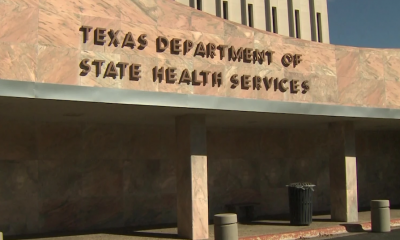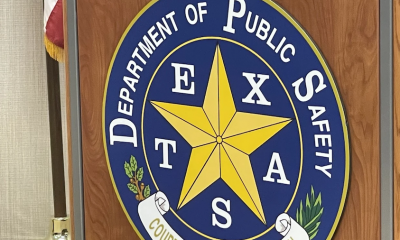U.S. News
Election Q&A: Candidates for Plano ISD Place 3
Why did you decide to run for the Plano ISD board of trustees?
NH: I pledge to serve the students, families, teachers and stakeholders of the district and give my promise to serve our community with honesty, integrity and dedication, looking through a lens that focuses on what is best for every student in Plano ISD, as I have for 11 years.
How has your experience prepared you for board service?
NH: In 11 years on the board, I’ve served as president, VP, and secretary. I chaired the board audit committee for 9 years, served as liaison to: city of Richardson (11 years), city of Plano (7 years), Richardson Chamber of Commerce Education and Workforce Committee (3 years), Head Start Policy Council (7 years), [and] was one of 36 trustees in Texas to participate in Leadership TASB 2015, earning designation of “master trustee.” During one of my three terms as president, our board was named Outstanding Board in Region 10 and one of five Honor Board[s] in Texas. I have extensive knowledge about the system of public education in Texas and especially in Plano ISD. I’ve been proud to serve on a board that has promoted academic choices for our students. I advocated to establish the Health Science Academy at Williams HS and PESH, the International Baccalaureate School at Huffman ES, and the partnership with Collin Technical Campus to offer courses in advanced industry careers. I thoroughly understand the complex system of school finance and am an advocate for public education, transparency in taxation and property tax relief. I also understand the school district budgeting process, accounting system and bond indebtedness management. Currently, I’m leading the board’s legislative subcommittee to advocate for Plano ISD’s legislative priorities during this current 87th session. I have exceeded required training every year for 11 years to keep informed on public education, including state and federal requirements.
What changes, if any, do you think should be made to the state’s recapture system, which redistributes tax revenue from property-wealthy school districts to those with lower property values, and why?
NH: Although [House Bill 3] that was signed into law during the 86th legislative session provided property tax relief via tax rate compression, districts who are subject to Chapter 49 of the Education Code continue to see rising recapture when enrollment is not increasing. PISD is in an area with a large property tax base but experiences enrollment decline as the community ages. PISD is the second largest contributor of recapture—since the inception in 1993, PISD has paid over $1.5 billion of local dollars back to the state—with no accountability. The state Legislature is mandated by its constitution to provide a free system of public schools. The state relies heavily on local property taxes to fund this system. As property values increase, the state’s share of funding declines, saving the state billions of dollars over time [and] permitting it to fund other items in its budget. Our taxpayers need accountability of where our local tax dollars go—I call this “taxparency.” How many of your tax dollars, paid in the name of PISD, go into the state general fund and may not even fund public schools? The remedy is complex; the state must find alternate sources of revenue to meet its constitutional commitment (NOT income tax). This has been a topic for many legislative sessions. I support a cap on the recapture tax and encourage legislators to find an equitable manner to fund public education.
What do you think are the biggest issues facing Plano ISD today, and how do you plan to address them if elected?
NH: Learning loss due to pandemic—support the use of data to determine and address the need by student; we have the tools to do that. School finance—advocate in Austin for adequate public school funding and transparency in taxation for our taxpayers. Unlevel playing field with public charter schools—continue to advocate for traditional public education. Why should taxpayers fund a duplicative system of education if it doesn’t provide better outcomes? Vouchers—continue to advocate to oppose any legislation that would remove funding from public education.
What else do you want voters to know about you?
NH: I have a proven record of service on the Plano ISD board of trustees and am committed to serve another four years. My connections with district personnel, state and federal legislators, State Board of Education, the cities of Plano and Richardson, chambers of commerce, rotary, business leaders and trustees across Texas provide valuable resources to everyone that I serve. I stay current on all matters relating to public education, school finance and listening to our community. I devote my full time to the role as a trustee and am extremely qualified for the job.
Why did you decide to run for the Plano ISD board of trustees?
LW: Children are our future. Every policy, law and regulation put in place today has a greater impact on the well-being of our children and their future than it does on adults. Having grown up in the Plano school system myself, I want to make sure the students enrolled today receive the same, if not better, quality of education I received. This past year with COVID has been a struggle on everyone, especially inside the classroom. Teachers and parents are having to navigate uncharted waters, and I want to be able to provide all the encouragement and support I can. I came to the realization: The only way to truly make a difference is to step up and get involved.
How has your experience prepared you for board service?
LW: Connecting with people is an inherent specialty of mine. Business development carries a strong presence in every role I have held. From banking, volunteer work, serving on a board for a YP nonprofit, event coordinating and marketing—the diversity of my positions enables me to connect with individuals from all backgrounds. More importantly, I am ambitious and persistent. I will not rest until I am able to make a positive impact on students, teachers and the community.
What changes, if any, do you think should be made to the state’s recapture system, which redistributes tax revenue from property-wealthy school districts to those with lower property values, and why?
LW: Every Texan student should be provided with the same opportunities and resources for education. This belief is written in our Texas Constitution, Article V11, Section 1: “A general diffusion of knowledge being essential to the preservation of the liberties and rights of the people, it shall be the duty of the Legislature of the State to establish and make suitable provision for the support and maintenance of an efficient system of public free schools.” Unfortunately, the state’s recapture system (Chapter 41, a.k.a. Robin Hood) is severely flawed, costing taxpayers and school districts millions of dollars. Plano ISD and many other property-wealthy school districts will soon be operating at a deficit. Although the recapture funds are going into a state general education fund, districts benefiting from this extra money have been caught spending it frivolously. I believe the best method in helping the schools and taxpayers is to repeal Robin Hood. Plano ISD taxpayers would pay lower school taxes without reducing funding to Plano schools. The state could make up revenue shortfall by capping the state’s budget growth and dedicate 90% of the surplus to lowering school property taxes. Unfortunately, it would take at least 10 years to see the changes. An important change that could be enacted now: Hold districts who receive recapture payments to a set of accountability standards in how the funds are being spent. If the funds are being squandered, those responsible for the wasteful spending should face heavy consequences.
What do you think are the biggest issues facing Plano ISD today, and how do you plan to address them if elected?
LW: Plano ISD has always been known for providing high-quality education to its students. Unfortunately, because of COVID this past year, the quality of education has wavered. I know that if we all work together on returning back to school quickly and safely, PISD can provide the high quality of education we have grown accustomed to. I believe it is also important to do a cost-benefit analysis on where funds are being allocated and [if it’s] in the best interest of teachers, students, and parents. Plano ISD should be completely transparent and have open communication with the community about spending and the reasoning behind each expense. This can help strengthen trust between PISD and the citizens of Plano, and it will help PISD gain even more support from the community.
What else do you want voters to know about you?
LW: I will bring a fresh new voice and positive, open-minded attitude to the table. I am willing to take the time to actively listen to the community. I have already started engaging in discussions with members of our community to learn and understand their concerns and praises regarding Plano ISD. I plan to continue these discussions if elected to the board of trustees Place 3.










